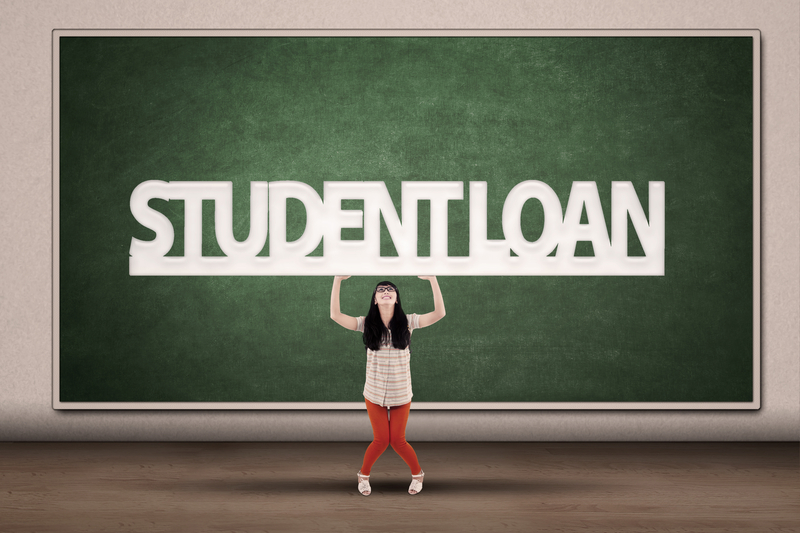
Filing for bankruptcy can seem like a frightening endeavor. Many questions and anxieties may arise, and you may be wondering whether student loans are even included in bankruptcy discharges. However, with the help of an excellent bankruptcy attorney, filing for bankruptcy can give you a financial fresh start. If you need the assistance of a bankruptcy attorney, call me, Nik Geranios, at Geranios Law, PLLC in Missoula, Montana. I will advocate for your financial freedom and help you understand the Justice Department’s new guidelines for student loan discharge.
New Process for Student Loan Bankruptcy Discharge
Anyone looking to discharge their student loan debt while filing for bankruptcy must undertake an additional “adversary proceeding.” At this adversary proceeding, you will attempt to convince the government that you will suffer “undue hardship” if you continue to pay your student loans.
The Department of Justice has added a new step to the beginning of this process. Before your adversary proceeding, you will complete an attestation form. This will be reviewed by attorneys with the Department of Justice, with help from the Department of Education. The Department of Justice attorneys will determine whether or not to recommend the discharge of the student loan debt to the bankruptcy judge.
The Attestation Form
Along with your tax returns, you will first fill out the attestation form, providing the following information:
- Your name and address
- Members of your household
- Information about your student loans (current monthly payments, the institution where you studied, whether you graduated with a degree, etc.)
- Current employment
- Current income
- Current assets (homes, vehicles, etc.)
- Uninsured medical expenses
- Payroll deductions (taxes, Medicare, Social Security, retirement accounts, Union dues, life insurance, alimony, child support, etc.)
- Housing expenses
- Transportation expenses
- Other expenses (which you can explain more fully on the form)
- Explanations of circumstances detailing why you are unlikely to be able to repay your student loans
- Details on prior efforts to repay loans
Factors for Determining Discharge
There are three main factors that determine whether the Justice Department will recommend a student loan discharge:
Present Ability to Pay
As outlined above, you will detail your expenses and income, as well as any extenuating circumstances affecting your present ability to pay your student loans, on your attestation form. If your expenses add up to more than your income or equal your income, the Justice Department will determine that you are not able to pay at present because you will be unable to meet a “minimal standard of living” if you do so.
Future Ability to Pay
The Justice Department will then use the information provided on the form to examine whether your present inability to pay is unlikely to change. The Justice Department attorneys will consider circumstances such as disability, age, chronic conditions, retirement, and whether or not you have a degree. Ultimately, they will determine whether paying back these loans is likely to continue to be an “undue hardship” in the future.
Good-Faith Efforts
As outlined above, you will detail any efforts you expended to repay your loans on your attestation form. A “good-faith effort” can be as simple as contacting the Department of Education for information about payment plans. You will not be penalized if you did not enroll in an income-driven payment plan if you can provide a reasonable explanation for why you did not enroll.
Defaulting on your loans is also not immediate grounds for rejection if you can provide proof that you did not willfully try to avoid paying the loans. If you can show, through your attestation form, that you have been working or seeking employment and attempting to keep your expenses as low as possible while meeting a “minimum standard of living,” these efforts will count in your favor. Your attorney can help you with your paperwork to make sure that your good-faith efforts are properly documented and explained.
During the review process, the Justice Department attorney may request further information. Your skilled attorney will be able to help you correspond with the Justice Department Attorney so you can answer any questions they may have.
Get the Help You Need
Don’t be deterred from applying for a student loan discharge during bankruptcy because it seems complicated or because you feel you are unlikely to be successful. The Department of Justice and the Department of Education are working to make the process easier, and are encouraging those who would face “undue hardship” in paying their loans to apply to discharge school debt. A skilled bankruptcy attorney can further facilitate your student loan discharge application, making sure that your paperwork includes all relevant information and is filed properly.
If you want to explore your bankruptcy and student loan debt options, call me, Nik Geranios, at Geranios Law, PLLC today . With an office in Missoula, my services extend to Bozeman, Billings, Butte, Helena, Hamilton, Kalispell, and throughout several counties—including Beaverhead County, Broadwater County, Jefferson County, Lake County, Lewis and Clark County, Madison County, Powell County, and more. I can help you get your finances back on track and restore your peace of mind.



